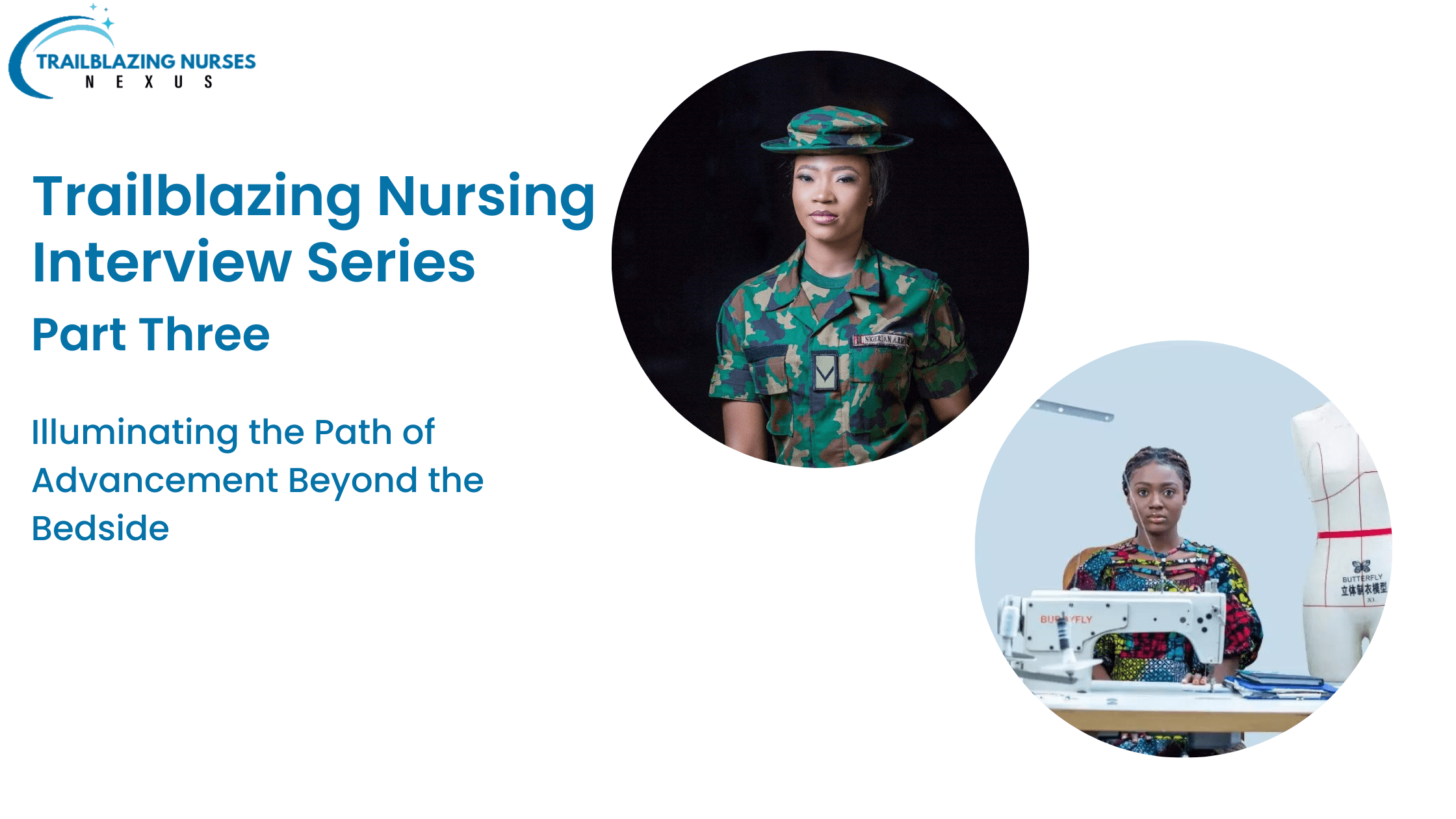Let’s call this post the second part of an article I published over a year ago on Care City Blog, titled; What You Need To Know About Cardiothoracic Critical Care Nursing In Nigeria.
In that article, I was able to spell out briefly who a Cardiothoracic Critical Care Nurse is (In the Nigerian context).
I talked about training modalities, education & some other interesting facts about that speciality. You should check it out, and share it with colleagues who are thinking of starting a career in Cardiothoracic Critical Care Nursing in Nigeria.
In Nigeria, there are very few institutions that train & educate Critical Care Nurses (only one trains Cardiothoracic Nurses).
There is a training institution in the east – Enugu state, the one I trained in, the University of Nigeria Teaching Hospital (UNTH). A great institution, and I enjoyed every minute I spent there learning.
There are three in the Northern part of Nigeria – In Jos (University of Jos Teaching Hospital), The Federal Capital Territory, Abuja (the University of Abuja Teaching Hospital) & Maiduguri, Borno State (School of Post-basic Critical Care Nursing, University of Maiduguri Teaching Hospital).
There may be plans to commence training of Critical Care Nurses in other Tertiary Healthcare Institutions in Nigeria, but for now, these are the institutions that we are sure about that train Critical Care Nurses in the country.
To make reading this article easy for our readers, we will split it into three parts.
The first part will talk briefly about the Similarities between these two specialities; the second part will talk about the Differences and the last part will talk about the Opportunities, both local and international.
A Brief Definition or Description of What Critical Care Nursing Is…
Critical Care, the first word there “Critical” says it all. Some like to call it “Intensive” some have even gone ahead to try separating these terms and giving them unique descriptions & definitions.
We are not going to talk about different ideas regarding definitions & descriptions in this article. We will just go straight to the point.
But before we go straight to the point, let’s talk, a little bit…

Photo Credit: Nicholas Bartos | Unsplash
Critical Care Nurses work in very high-stress environments. Because their nursing roles have advanced beyond the normal. They are actually advanced-practice nurses, in a sense.
They deal with critically ill patients, patients who might not survive their illness; patients whose chances of survival are slim, or patients who need close monitoring of their vital signs (life signs). Many of them are ventilated, either invasively or non-invasively; some will need multiple organ support, for the kidneys, GIT, etc.
“This is where the greatest breadth of knowledge, competency, and skill are required in order to keep the patient alive and comfortable with their dignity intact.”
Nicholas McGowan, Nursing Educator at Critical Care Academy
In Critical Care Nursing, sometimes, if not all the time, the Critical Care Nurse is even more responsible for the patient than the Physician. They are the eyes, nose, ears, hands, and everything of the patient.
Before any plan is effected on or for that patient, it must pass before the eagle eyes of the Critical Care Nurse.
If they do not understand why it’s been done or they are not comfortable with it, then it’s their duty to advocate and seek to know why & how.
In Critical Care Nursing/Medicine, no one is going to stand on the pulpit and scream;
“Hey, I am the boss here, y’ll listen to me and follow my orders, or you get thrown out.”
No, nobody does that here. We are a team, and your judgment passes through the eyes of many before it is accepted and carried out.
It’s all about the patient, remember, they can’t do anything for themselves, and you are the primary suspect if anything should go wrong.
Ok, enough of too much talk. Now, to business…Shall we?
Cardiothoracic Critical Care Nursing (CTN) & Critical Care Nursing (ICN or CCN) – Similarities
A Cardiothoracic Critical Care Nurse is an advanced practice nurse trained to specifically take care of critically ill patients who require advanced care for pathologies affecting the heart; cardiovascular system & thoracic walls. Their training & education spans the vast medical & surgical domains of care.
I call it a speciality within a speciality because a greater emphasis is placed on the care of the Cardiovascular/thoracic System (which is the alpha system), and when we talk about Critical Care Nursing or Medicine in general, there is no way we will not place the cardiovascular system in the middle because it is the central aspect of clinical attention in critical care, whether it be Neurological Critical Care, Orthopaedic Critical Care, Obstetrics & Gynaecological Critical Care, Oncology Critical Care, there will always be a need to support the cardiovascular system (do you understand that?)
An Intensive Care Nurse, as provided by law & the governing nursing professional body in Nigeria, is an advanced practice nurse, who is trained & educated to provide critical nursing care through a broad & general spectrum of medical & surgical morbidities/pathologies.
So, an Intensive Care Nurse is a General Practice Critical Care Nurse. One trained to provide intensive nursing care at a more general level, then, their primary places of practice (or interests) can now afford them the opportunity to grow in various critical care sub-specialities (do you understand?)
If we had Neuro Critical Care Nurses, they will be under the same category as Cardiothoracic Critical Care Nurses, because they have become a sub-speciality, i.e a speciality within a speciality. But the training & education will still give them the clinical abilities to provide nursing care to patients in any critical care setting, whether in the General Intensive Care Unit, High Dependency Unit, Trauma Unit, and even in Renal Critical Care Units.
In Nigeria, there was a time that the Intensive Care Nursing training institution began to complain that the Cardiothoracic Training Institution in Enugu State, was awarding a dual post-basic professional certificate – in Cardiothoracic nursing & Intensive care nursing. Their certificates and documents at one time actually carried these two descriptions, until recently, when they had to stick with the Cardiothoracic Critical Care badge.
But if you take a critical look, you will see that it is almost impossible to separate these two specialities. They are like Siamese twins joined at the brain, they are inseparable.
What I am trying to do with this blog post is to provide my colleagues out there seeking to start a career in critical care nursing in Nigeria that they can decide to start their critical care nursing careers as Cardiothoracic Critical Care Nurses or Intensive Care Nurses, we are one family.
Right now, we only have about 451 Cardiothoracic Critical Care Nurses trained and educated in Nigeria (a vast majority of them have left the country).
The yearly training slots for these super nursing specialities in every institution are about 30 (If I am not mistaken).
And we have been clamouring that the nursing training body in Nigeria takes these specialities to the level of Masters In Critical Care Nursing/Cardiothoracic Critical Care Nursing while maintaining the rigorous clinical training paths and incorporating universal standards in research.
This development may prolong training duration, and maybe increase cost, but it should not exceed an academic period of two years or eighteen months.
Cardiothoracic Critical Care Nursing (CTN) & Critical Care Nursing (CCN/ICN) – Differences
You may ask me, are there any differences between these specialities? There are differences. But these differences are almost negligible.
The Cardiothoracic Critical Care Nurse trained in Nigeria is trained in a traditional Intensive Care Unit, but most of their training focuses more on surgical ICUs taking care of post-operative Open Heart Surgery patients & Neurological Care Units, though they are exposed to the management of other critical cases, the Open Heart Surgery & vascular cases, seem to form a bulk of their clinical experiences.
That does not mean that they do not manage other critical care cases, but the number of Open Heart Surgeries done in UNTH (UNTH has been designated a centre of excellence in Cardiac care) has greatly influenced their practice.
Though they still have to adjust when they are finally done with training, so that they can operate without friction in other critical care environments, like the Renal Critical Care Units, Neuro Critical Care, etc.
Cardiothoracic Critical Care Nurses are also exposed to a wider variety of clinical experiences, they are required to interact with the clinical protocols that exist in the medical & surgical areas (but there are no provisions for Obstetric & Gynaecological exposures, which I am glad about – personal stuff there, winks).
The Intensive Care Nurse trained in Nigeria also enjoys the exposure that the Cardiothoracic Nurse enjoys in the area of care of post-operative open-heart surgery patients.
There is provision for them to travel to Ghana’s Korle bu Teaching Hospital, to experience first-hand the Nursing, Medical & Surgical care given to open-heart surgery patients.
I have written an article about my experience at Korle bu’s Cardiothoracic Center of Excellence, you should check it out here (It’s an old article, but I love it so much).
In a “critical shell,” I can say that there aren’t obvious & noteworthy differences between these unique nursing specialities. They are both special and have within their walls unique adventures awaiting.
Cardiothoracic Critical Care Nursing (CTN) & Critical Care Nursing (CCN/ICN) – Opportunities
The opportunities are WOW! Critical Care Nurses are in high demand all over the country and the world.
They are among the highest-paid nurses in Nigeria, alongside their sisters, Nurse Anaesthetists & Renal/Nephrology Nurses, especially in developed cities in Nigeria (Lagos, Abuja & Port-Harcourt).
And the international opportunities are also amazing. Your experience as a Critical Care Nurse in an Intensive Care Unit or any other Critical Care environment is rich.
It makes it easier for you to pass international nursing examinations, especially the almighty N-CLEX examinations, and it places you in a special category in the eyes of international recruiters.
During the pandemic, the surge in the demand for Critical Care professionals, both nurses, physicians & others, gave us a glimpse into what the future of critical care nursing & medicine may look like.
There will be more opportunities in the future for Critical Care professionals.
The advancements that digital health is also bringing into the healthcare industry is another factor that will positively affect the market for Critical Care professionals in the future.
In Conclusion
Whatever path you decide to take to become a Critical Care Nurse in Nigeria, is definitely going to be an adventure for you.
You will be introduced to a whole new world of Nursing Practice. Where you have a certain degree of autonomy in the care of your patient, though not without supervision & consultation, which are very important elements when it comes to autonomous practice for Registered Nurses.
As Critical Care Nurses, we are forced to know everything about a patient’s medical condition.
We are sucked into every aspect of their care. You become a critical thinker.
Critical Care Medicine is 95% Nursing and 5% Medicine.
Yes, it’s amazing.
In the Critical Care setting, we do everything for the patient, from eating to breathing. You can see that there’s a whole lot of work there. And that’s why anyone who wants to enter this world must be prepared.
Before I close the curtains, a little bonus information.
As regards cost, if you want to conveniently study, you will need about A Million Naira or more. You know, that’s a lot, considering the way the country is, and one singular factor that makes it this expensive is the external clinical experience in Ghana.
The external experience is a good bargain.
We have to look at it from various perspectives. Apart from the fact it exposes us to how it is done in another country, it’s also a rich cultural experience. I can tell you.
You get to interact with their medical & nursing culture and start looking for ways of improving your own culture.
That notwithstanding, unfortunately, Nigeria has not yet grown to the level where they can boast of handling a good volume of Cardiothoracic Surgical Cases, where Nurses & Doctors can learn a lot, except for the occasional medical outreaches and some private institutions (like Babcock Teaching Hospital) that are trying hard to change the narrative in Cardiothoracic Surgery in Nigeria.
It’s really disappointing though if you look at it. We have the capacity to do more as a big country, but we don’t.
Instead, we allow our Nurses & Doctors, and other brilliant minds to seek refuge in other countries that appreciate their genius. And then when our big leaders or people who can afford it, fall sick, they take themselves to these countries that have absorbed and accommodated us to get treated by us–very very strange.
READ ALSO
Monitor My Heart From Afar – Remote Monitoring of Cardiac Physiology Made Possible
What do you think? Do you feel that we missed some information? Or are there things that you want us to include? Send us feedback here: info@carecityonline.com, and we will be glad to hear and learn from you.
In the next post in this series, we will talk about another very interesting Nursing Speciality in Nigeria. Do stay tuned.
We publish some newsletters on Substack. We feature a lot of interesting and value-packed curated content and sometimes content you may not find directly on our Website. If you don’t mind, check it out and kindly subscribe below.







Drop Your Comment